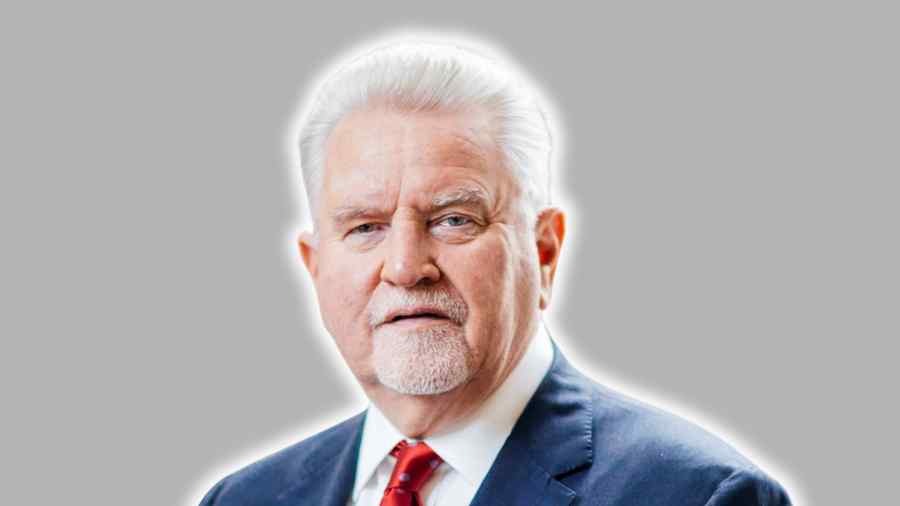Rod Aldridge: Visionary Entrepreneur and Education Advocate

Rod Aldridge, formally known as Sir Rodney Malcolm Aldridge, is one of the most influential British entrepreneurs of the late 20th and early 21st centuries. Best known as the founder of Capita, one of the United Kingdom’s largest outsourcing and professional services companies, his story spans business leadership, public controversy, and an enduring commitment to education and community development. Beyond the boardroom, Aldridge has become a prominent philanthropist, particularly in the field of education, where his foundation continues to inspire and support young people.
Early Life and Background
Rod Aldridge was born on 7 November 1947 in the United Kingdom. His upbringing and early professional life were rooted in the public sector, where he developed a strong understanding of finance and local government structures. Before embarking on his entrepreneurial journey, he worked with the Chartered Institute of Public Finance and Accountancy (CIPFA). His experience there gave him valuable exposure to public service management, budgeting, and organisational efficiency. These foundations would later prove vital when he launched his own business venture.
Founding Capita
In 1987, Rod Aldridge spearheaded the management buyout of a division of CIPFA, which eventually became Capita. Under his leadership as executive chairman, Capita grew from a small team into a FTSE 100 giant. The company focused on providing outsourced services to both the public and private sectors. Capita became synonymous with efficiency, large-scale contracts, and ambitious growth.
Aldridge’s vision for Capita was grounded in offering practical solutions to governments, councils, and private organisations seeking to modernise and cut costs. Capita handled everything from administration and payroll to IT support, recruitment, and consultancy. By the early 2000s, the firm had become a symbol of Britain’s outsourcing revolution, employing tens of thousands and generating billions in revenue.
Leadership Style and Philosophy
Rod Aldridge was known for his pragmatic, results-driven approach. He embraced the belief that outsourcing could deliver better value for money in public services while allowing government institutions to focus on policy rather than administration. His leadership style combined commercial sharpness with a willingness to challenge traditional bureaucratic systems.
He also strongly advocated for innovation in business models. Capita was one of the first major companies to recognise the potential of long-term service partnerships, aligning its success with the success of its clients. This approach differentiated Capita from competitors and established Aldridge as a pioneer in the industry.
The 2006 Controversy and Resignation
In 2006, Rod Aldridge resigned from Capita following public criticism over his £1 million loan to the Labour Party. Although no wrongdoing was proven and Aldridge maintained that the donation was a personal act of political support rather than a business decision, the controversy raised concerns about the relationship between private contractors and government. Given Capita’s extensive portfolio of government contracts, the optics of the situation led Aldridge to step down in order to protect the reputation of the company he had built.
His resignation marked the end of nearly two decades at the helm of Capita. However, rather than retreating from public life, Aldridge redirected his energy into philanthropy and education, fields that would define the second chapter of his career.
The Aldridge Foundation
In the same year as his resignation, Aldridge launched the Aldridge Foundation, a charity dedicated to empowering young people through education. His focus shifted from corporate boardrooms to classrooms, where he aimed to instil confidence, creativity, and entrepreneurial thinking among students.
The Foundation sponsors academies and schools across the United Kingdom, often in areas of high deprivation. The philosophy behind these schools is not only to raise academic standards but also to cultivate entrepreneurial mindsets that equip students to navigate the challenges of modern life.
Aldridge believed strongly that education should extend beyond textbooks. His academies focus on real-world skills, enterprise projects, and personal development, ensuring that students graduate with the resilience and innovation needed to thrive in today’s society.
Patron of Aldridge Education
Beyond the Foundation, Rod Aldridge has been a patron of Aldridge Education, a multi-academy trust that operates schools with the same ethos of entrepreneurship and empowerment. The trust works to raise aspirations and opportunities for young people, particularly in underprivileged areas. His influence has shaped the culture of these schools, emphasising creativity, determination, teamwork, and problem-solving.
Contribution to Higher Education
One of Aldridge’s most notable achievements in education was his involvement in the founding of Ada, the National College for Digital Skills, which opened in 2016. Recognising the growing importance of technology and digital industries, Aldridge supported the creation of a college dedicated to equipping students with the skills needed to succeed in the digital economy. Ada has since become a hub for training in coding, digital design, and computer science, helping bridge the skills gap in one of the most vital sectors of the 21st century.
Other Roles and Contributions
Rod Aldridge’s contributions have extended to several organisations and causes beyond his foundation. He has been involved with the Prince’s Trust, the youth volunteering charity vInspired, and other community-focused initiatives. His commitment to social mobility and young people’s empowerment reflects his belief that business leaders have a responsibility to give back to society.
In recognition of his contributions, he has received several honours, including a knighthood for services to young people. This recognition reflects not just his corporate achievements but also his dedication to education and social impact.
Autobiography and Reflections
Rod Aldridge authored his autobiography, You’re Better Than They Think You Are, in which he reflects on his personal journey, business career, and philanthropic mission. In the book, he highlights lessons learned from both his successes and controversies, offering insights into leadership, resilience, and the value of education. His candid storytelling and willingness to confront challenges make the book a valuable resource for aspiring entrepreneurs and leaders.
Legacy and Impact
Rod Aldridge’s legacy is two-fold. On one hand, he will always be remembered as the visionary who built Capita into one of the UK’s largest outsourcing firms. On the other, his name has become deeply associated with education and community empowerment through the Aldridge Foundation and his academies.
His work demonstrates the power of reinvention. After leaving Capita under difficult circumstances, he managed to redefine his public image as a philanthropist and education reformer. For many, his story is a reminder that setbacks can lead to new beginnings and that true success lies in making a difference in the lives of others.
Conclusion
Rod Aldridge’s life is a compelling blend of entrepreneurial drive, public controversy, and a deep commitment to education. From building a corporate powerhouse to founding schools that shape the leaders of tomorrow, his journey reflects both resilience and reinvention. By championing enterprise and digital skills in education, he has left a legacy that goes far beyond business achievements.
Rod Aldridge stands as an example of how leadership, vision, and philanthropy can intersect to create lasting change. His work continues to influence not only how public services are delivered but also how young people are inspired to reach their full potential. For anyone seeking to understand the intersection of business success and social impact in modern Britain, the story of Rod Aldridge remains a powerful and instructive case study.



